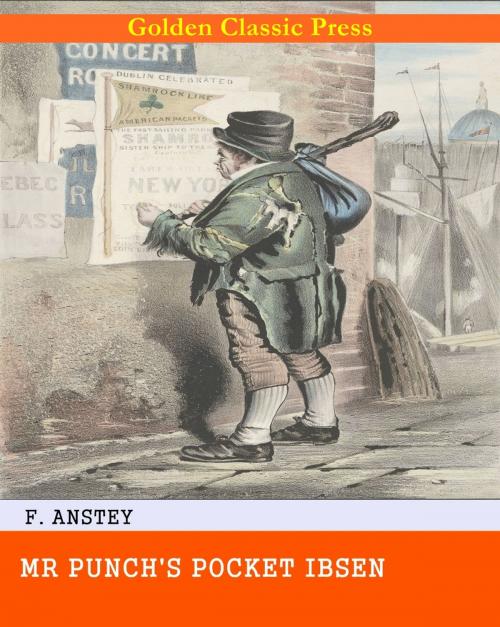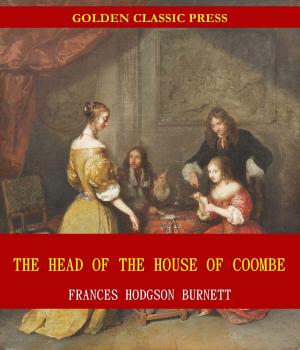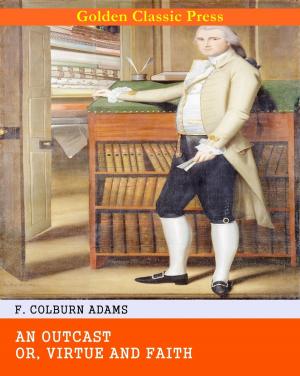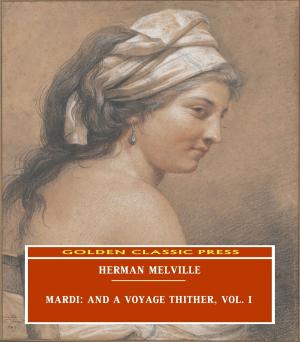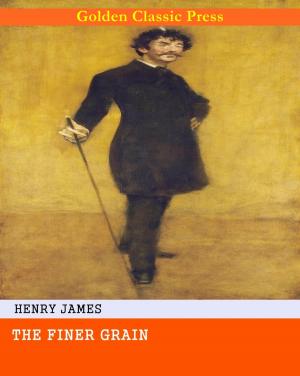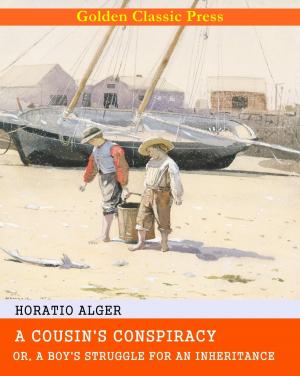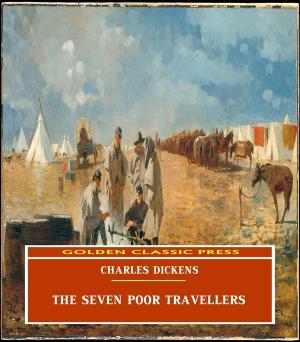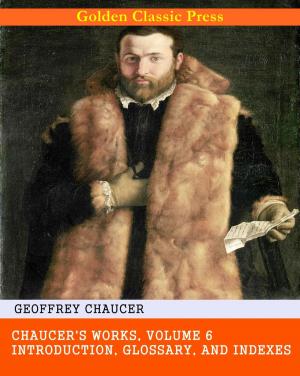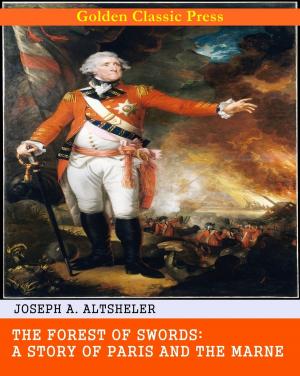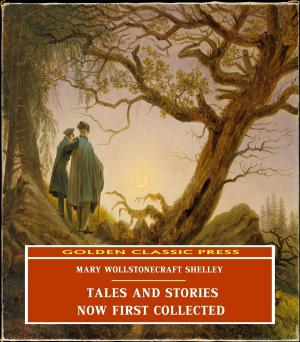| Author: | F. Anstey | ISBN: | 1230002952536 |
| Publisher: | GOLDEN CLASSIC PRESS | Publication: | November 30, 2018 |
| Imprint: | Language: | English |
| Author: | F. Anstey |
| ISBN: | 1230002952536 |
| Publisher: | GOLDEN CLASSIC PRESS |
| Publication: | November 30, 2018 |
| Imprint: | |
| Language: | English |
*** Original and Unabridged Content. Made available by GOLDEN CLASSIC PRESS***
Synopsis:
Thomas Anstey Guthrie (8 August 1856 - 10 March 1934) was an English novelist and journalist, who wrote his comic novels under the pseudonym F. Anstey. He was born in Kensington, London, to Augusta Amherst Austen, an organist and composer, and Thomas Anstey Guthrie. He was educated at King's College School and at Trinity Hall, Cambridge, and was called to the bar in 1880. But the popular success of his story Vice Versa (1882) with its topsy turvy substitution of a father for his schoolboy son, at once made his reputation as a humorist of an original type. In 1883, he published a serious novel, The Giant's Robe; but he discovered (and again in 1889 with The Pariah) that it was not as a serious novelist but as a humorist that the public insisted on regarding him. As such, his reputation was further confirmed by The Black Poodle (1884), The Tinted Venus (1885), A Fallen Idol (1886), and other works. Baboo Jabberjee B.A. (1897), and A Bayard from Bengal (1902) are humorous yet truthful studies of the East Indian with a veneer of English civilization. Guthrie became an important member of the staff of Punch magazine, in which his voces populi and his humorous parodies of a reciter's stock-piece (Burglar Bill, &c.) represent his best work. In 1901, his successful farce The Man from Blankleys, based on a story that originally appeared in Punch, was first produced at the Prince of Wales Theatre, in London. He wrote Only Toys (1903) and Salted Almonds (1906). Many of Anstey's stories have been adapted into theatrical productions and motion pictures. The Tinted Venus was adapted by S. J. Perelman, Ogden Nash, and Kurt Weill into One Touch of Venus in 1943. Vice Versa has been filmed many times, usually transposed in setting and without any credit to the original book. Another of his novels, The Brass Bottle, has also been filmed more than once, including The Brass Bottle (1964). His Tourmalin's Time Cheques (1891) is one of the earliest stories featuring the science fiction concept of intentional and frequent movement in time, and probably the first to investigate the practical paradoxes such a concept would create. Sir John Bernard Partridge (11 October 1861 - 9 August 1945) was an English illustrator. Born in London, he was the son of Professor Richard Partridge, F.R.S., president of the Royal College of Surgeons, and nephew of John Partridge, portrait-painter extraordinary to Queen Victoria. For some years he was well known as an actor under the name of Bernard Gould. Partridge was educated at Stonyhurst College, and after matriculating at the University of London entered the office of Dunn & Hansom, architects. He then joined for a couple of years a firm of stained-glass designers (Lavers, Barraud and Westlake), learning drapery and ornament; and then studied and executed church ornament under Philip Westlake, 1880-1884. He began illustration for the press and practised watercolour painting, but his chief success was derived from book illustration. In 1891 he joined the staff of Punch and, in 1910, became its chief cartoonist, replacing Edward Linley Sambourne. During his time at Punch, Partridge published several cartoons showing his support for the Suffragist movement. He was elected a member of the Royal Institute of Painters in Water Colours and of The Pastel Society. In 1915, he designed World War I posters, some of which are now held at the State Library of Victoria, Melbourne, Australia, including Take up the Sword of Justice (H33861/33). In 1925, he was knighted by Prime Minister Stanley Baldwin and gave his support to the government during the General Strike.
*** Original and Unabridged Content. Made available by GOLDEN CLASSIC PRESS***
Synopsis:
Thomas Anstey Guthrie (8 August 1856 - 10 March 1934) was an English novelist and journalist, who wrote his comic novels under the pseudonym F. Anstey. He was born in Kensington, London, to Augusta Amherst Austen, an organist and composer, and Thomas Anstey Guthrie. He was educated at King's College School and at Trinity Hall, Cambridge, and was called to the bar in 1880. But the popular success of his story Vice Versa (1882) with its topsy turvy substitution of a father for his schoolboy son, at once made his reputation as a humorist of an original type. In 1883, he published a serious novel, The Giant's Robe; but he discovered (and again in 1889 with The Pariah) that it was not as a serious novelist but as a humorist that the public insisted on regarding him. As such, his reputation was further confirmed by The Black Poodle (1884), The Tinted Venus (1885), A Fallen Idol (1886), and other works. Baboo Jabberjee B.A. (1897), and A Bayard from Bengal (1902) are humorous yet truthful studies of the East Indian with a veneer of English civilization. Guthrie became an important member of the staff of Punch magazine, in which his voces populi and his humorous parodies of a reciter's stock-piece (Burglar Bill, &c.) represent his best work. In 1901, his successful farce The Man from Blankleys, based on a story that originally appeared in Punch, was first produced at the Prince of Wales Theatre, in London. He wrote Only Toys (1903) and Salted Almonds (1906). Many of Anstey's stories have been adapted into theatrical productions and motion pictures. The Tinted Venus was adapted by S. J. Perelman, Ogden Nash, and Kurt Weill into One Touch of Venus in 1943. Vice Versa has been filmed many times, usually transposed in setting and without any credit to the original book. Another of his novels, The Brass Bottle, has also been filmed more than once, including The Brass Bottle (1964). His Tourmalin's Time Cheques (1891) is one of the earliest stories featuring the science fiction concept of intentional and frequent movement in time, and probably the first to investigate the practical paradoxes such a concept would create. Sir John Bernard Partridge (11 October 1861 - 9 August 1945) was an English illustrator. Born in London, he was the son of Professor Richard Partridge, F.R.S., president of the Royal College of Surgeons, and nephew of John Partridge, portrait-painter extraordinary to Queen Victoria. For some years he was well known as an actor under the name of Bernard Gould. Partridge was educated at Stonyhurst College, and after matriculating at the University of London entered the office of Dunn & Hansom, architects. He then joined for a couple of years a firm of stained-glass designers (Lavers, Barraud and Westlake), learning drapery and ornament; and then studied and executed church ornament under Philip Westlake, 1880-1884. He began illustration for the press and practised watercolour painting, but his chief success was derived from book illustration. In 1891 he joined the staff of Punch and, in 1910, became its chief cartoonist, replacing Edward Linley Sambourne. During his time at Punch, Partridge published several cartoons showing his support for the Suffragist movement. He was elected a member of the Royal Institute of Painters in Water Colours and of The Pastel Society. In 1915, he designed World War I posters, some of which are now held at the State Library of Victoria, Melbourne, Australia, including Take up the Sword of Justice (H33861/33). In 1925, he was knighted by Prime Minister Stanley Baldwin and gave his support to the government during the General Strike.
